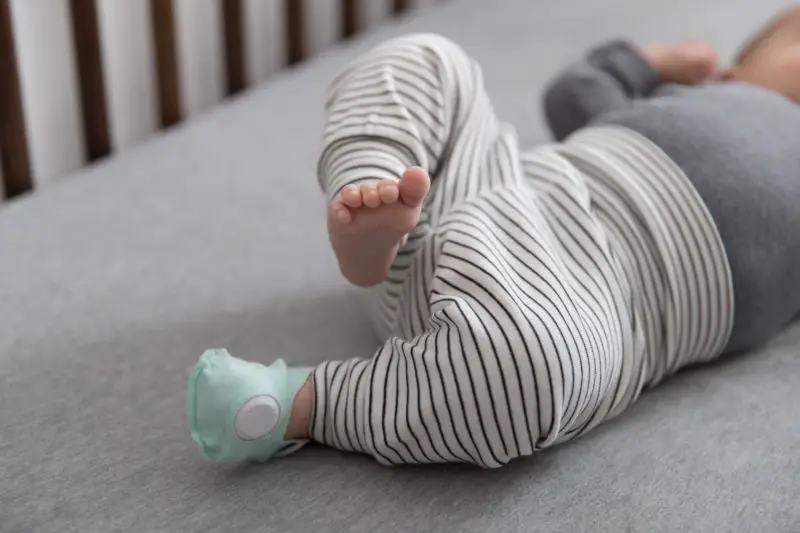Are you interested to know more about pregnancy baby kicks? You will be amazed at what wonders a baby kick monitor could prove to be. Here we will discuss on how a baby kick counter bracelet would evolve
You need to understand the fact that the pregnancy kicks are felt after 9 weeks. During the early stages of pregnancy a flutter is felt that is an early sign of pregnancy. These movements tend to emerge from the 7th week of pregnancy. In fact it is an early stage for pregnant women even to feel them. It is observed that babies tend to kick around 9 weeks and this is the time when limbs are being moved. Once 24 weeks are over, you will feel that the babies would kick very often.
If the frequency of the kicks reduces then it does point to the fact that the baby is in distress. Once 28 weeks are over the doctor will ask you to keep a count of the kicks of the baby. In a couple of hours, the baby is known to kick 10 times. When there is reduce in fetal activity it does point to a fetal distress.
- Nutritional problems accompanied by stress– the physical and emotional state indicate the wellbeing of a baby. If there is lack of nutritional development it could lead to improper development of the nervous system or the brain which is going to reduce fetal activity. It is suggested that you walk around a lot and have sufficient water if you are not observing the movement of the baby
- Placental absorption- here the oxygen and blood flow to the fetus is being disrupted and this does have a role in the development
- It is observed that a decrease in the amniotic sac is being witnessed and the fetal movements are slowed down due to the levels of oxygen being insufficient
- Fetal hypoxia- this is a scenario where the umbilical cord gets tweeted or twisted. It does point to the fact that the supply of oxygen is cut off to the baby.
With the help of a non-stress test or an ultrasound you can figure out the heartbeat of the baby and this leads to a reduction in fetal movements.
Another important point of consideration is that there is nothing to worry as far as reduced kicks in the later stages of pregnancy tend to arise. It is normal for a baby to rest in the womb for 20 to 40 mins. This could increase to 90 minutes at a time. Once the baby tends to increase in size stretching along with rolling does go on to become a bit difficult. It is quite obvious that the frequency of kicks will reduce once you reach the end of pregnancy. It is observed that during this phase there are chances of painful kicks emerging in your ribs or jerking that could last for a few minutes as well.
The pregnancy kicks indicates future behavioural patterns of a baby.

